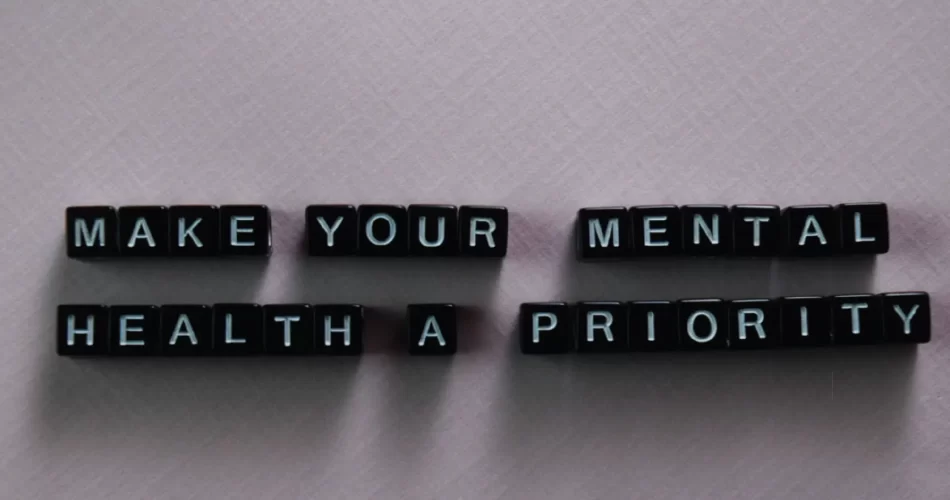Last Updated on 29 January 2024 by Vanessa Thoko
Mental health is important in South Africa because it affects the overall well-being of individuals, families, and communities.
It is estimated that 1 in 5 people in South Africa experience a mental health disorder in any given year, but only a small fraction of these people receive the treatment they need.
Mental health disorders can have a significant impact on people’s lives, leading to problems such as:
- Decreased productivity at work or school
- Difficulty maintaining relationships
- Increased risk of substance abuse
- Increased risk of suicide
Let’s dive into why taking care of our minds is as crucial as caring for our bodies.
Key Facts
- Mental Health Importance: Mental health is crucial in South Africa for the well-being of individuals, families, and communities, but many don’t receive needed treatment.
- Mental Health Crisis: South Africa faces a severe mental health crisis with 1 in 6 affected yearly, primarily due to poverty, inequality, violence, and limited access to services.
- Stigma: Stigma surrounding mental health prevents seeking help and hinders productive lives, fueled by misunderstanding and negative media portrayal.
- Economic and Social Costs: Mental health issues lead to decreased productivity, strained relationships, substance abuse, and a significant economic burden, costing billions annually.
- Importance of Early Intervention: Early intervention can prevent worsening conditions and improve outcomes, with effective programs for various mental health issues.
Mental Health Crisis In South Africa

The mental health crisis in South Africa is a serious problem that affects millions of people.
According to the World Health Organization, one in six people in South Africa experiences a mental health disorder in any given year.
However, only a small fraction of these people receive the treatment they need.
There are a number of factors that contribute to the high rates of mental health disorders in South Africa, including:
- Poverty
- Inequality
- Violence
- Trauma
- HIV/AIDS
- Lack of access to mental health services
The COVID-19 pandemic has also had a significant impact on mental health in South Africa.
The pandemic has caused widespread economic hardship, social isolation, and uncertainty, all of which can increase the risk of developing mental health problems.
The mental health crisis in South Africa has a number of negative consequences.
Mental health disorders can lead to decreased productivity at work or school, difficulty maintaining relationships, increased risk of substance abuse, and increased risk of suicide.
Mental health is also a major economic burden on South Africa, costing the country billions of rands each year in lost productivity and healthcare costs.
Stigma Surrounding Mental Health

There is a significant amount of stigma surrounding mental health in South Africa.
This stigma can prevent people from seeking help for mental health problems, and it can also make it difficult for people with mental health conditions to live full and productive lives.
There are a number of factors that contribute to the stigma surrounding mental health in South Africa.
One factor is the lack of understanding about mental health conditions.
Many people believe that mental health conditions are signs of weakness or laziness, and they may not understand that these conditions are real and treatable.
Another factor that contributes to the stigma surrounding mental health is the negative portrayal of mental illness in the media.
Mental health conditions are often sensationalized in the media, and they can be linked to violence and other negative stereotypes.
This can lead to people being afraid of people with mental health conditions.
Economic And Social Costs

The economic and social costs of mental health in South Africa are significant.
Mental health disorders can lead to a number of negative consequences, including:
- Decreased productivity at work or school
- Difficulty maintaining relationships
- Increased risk of substance abuse
- Increased risk of suicide
Mental health is also a major economic burden on South Africa, costing the country billions of rands each year in lost productivity and healthcare costs.
A recent study estimated that the economic cost of mental health disorders in South Africa is ZAR200bn per year.
This cost includes the cost of lost productivity, healthcare costs, and early death.
The social costs of mental health disorders are also significant. Mental health disorders can lead to isolation, stigma, and discrimination.
People with mental health disorders may have difficulty finding and keeping a job, maintaining relationships, and participating in community activities.
Importance Of Early Intervention

Early intervention in mental health is important because it can help to prevent mental health problems from becoming worse and more difficult to treat.
Early intervention can also help to improve the long-term outcomes for people with mental health conditions.
Early intervention programs have been shown to be effective in preventing and treating a variety of mental health conditions, including:
- Depression
- Anxiety
- Bipolar disorder
- Schizophrenia
- Eating disorders
- Substance abuse
Conclusion
In South Africa, mental health is not a luxury; it’s a necessity.
Let’s break the silence, erase the stigma, and embrace the well-being of our minds.
Start the conversation, seek help when needed, and take the first step towards a healthier, happier South Africa.
Your mental health matters, and so do you.










